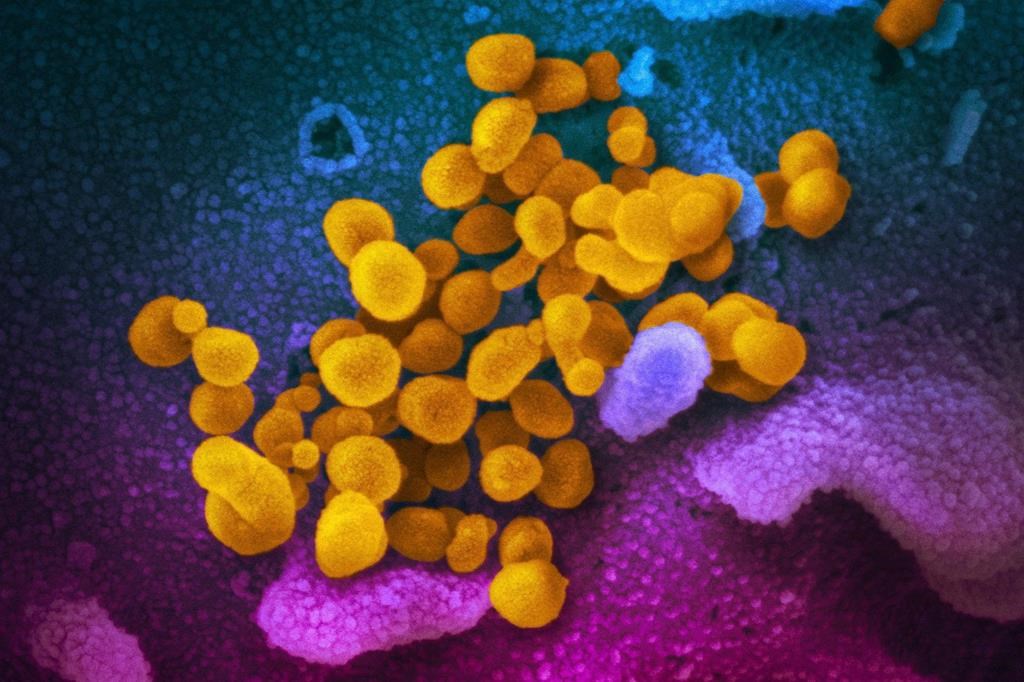The novel coronavirus has been linked to the deaths of two more Manitobans as the province is again expanding its COVID-19 vaccination program into more communities deemed to be at high risk of transmission.

The latest fatalities announced Thursday include a woman in her 50s and a man in his 60s, both from the Northern Health region.
Their deaths bring Manitoba’s COVID-19 death toll to 973.
Health officials are hoping to curb a growing list of active cases — which increased by 230 infections Thursday — by expanding vaccine eligibility for all adults living in several new areas where the virus is spreading at a faster rate.

Anyone 18 or older living in Winnipeg’s Inkster West and Fort Garry South neighbourhoods, as well as Powerview-Pine Falls and the East End of Brandon, can now book an appointment to get a shot.
Adults who don’t live in those areas but who work there in certain jobs that involve the public — such as teachers and grocery store employees — can book as well.
Similar measures have already been adopted in other areas of central Winnipeg, downtown Brandon and the province’s north. The minimum age for vaccinations elsewhere remains at 30 and up for First Nations people, and 40 and up for others.
The majority of Thursday’s new cases — 177 — were found in Winnipeg, according to health data, with another 23 reported in the Prairie Mountain Health region, 14 in the Southern Health region, 11 in the Northern Health region, and five in the Interlake-Eastern Health region.
The total number of lab-confirmed cases in Manitoba now sits at 38,439 after two previously announced cases were removed due to data corrections.

Get weekly health news
The current five-day COVID-19 test positivity rate is 7.2 per cent provincially and 8.3 per cent in Winnipeg.
Data released by the province Thursday shows there are currently 2,263 active COVID-19 cases province-wide and hospitalization rates continue to rise.
As of Thursday morning, there were 142 people in hospital as a result of COVID-19, including 41 in intensive care units, according to health data.
Meanwhile, the province said another 212 cases of COVID-19 have been confirmed to be variants of concern.
The latest variant cases bring Manitoba’s total number of variants of concern confirmed since February to 1,900, and of those, 754 remain active.

In all Manitoba has reported 1,201 cases of the B.1.1.7 strain first identified in the United Kingdom, 20 cases of the B.1.351 variant first found in South Africa, and nine cases of the P.1 variant, first identified in Brazil.
There are another 670 variant cases listed as unspecified on the province’s online portal tracking the more-contagious strains.
Laboratory testing numbers show 2,941 tests were done Wednesday, bringing the total number of lab tests completed since early February 2020 to 656,519.
The province says it’s seeing an uptick in the number of people getting tested for COVID-19 and is reminding Manitobans not everyone needs to be tested.
“Public health officials are reminding Manitobans that in most cases, they should only seek testing at a provincial test site if they are symptomatic, have been identified as a close contact or have been directed to get tested by public health,” reads a release from the province.
“This will help ensure that those who need to be tested can continue to access testing as easily as possible.”
Manitoba announced 189 new cases and three additional deaths from the virus on Wednesday.
–With files from The Canadian Press
Questions about COVID-19? Here are some things you need to know:
Symptoms can include fever, cough and difficulty breathing — very similar to a cold or flu. Some people can develop a more severe illness. People most at risk of this include older adults and people with severe chronic medical conditions like heart, lung or kidney disease. If you develop symptoms, contact public health authorities.
To prevent the virus from spreading, experts recommend frequent handwashing and coughing into your sleeve. They also recommend minimizing contact with others, staying home as much as possible and maintaining a distance of two metres from other people if you go out. In situations where you can’t keep a safe distance from others, public health officials recommend the use of a non-medical face mask or covering to prevent spreading the respiratory droplets that can carry the virus. In some provinces and municipalities across the country, masks or face coverings are now mandatory in indoor public spaces.
For full COVID-19 coverage from Global News, visit our coronavirus page.








Comments